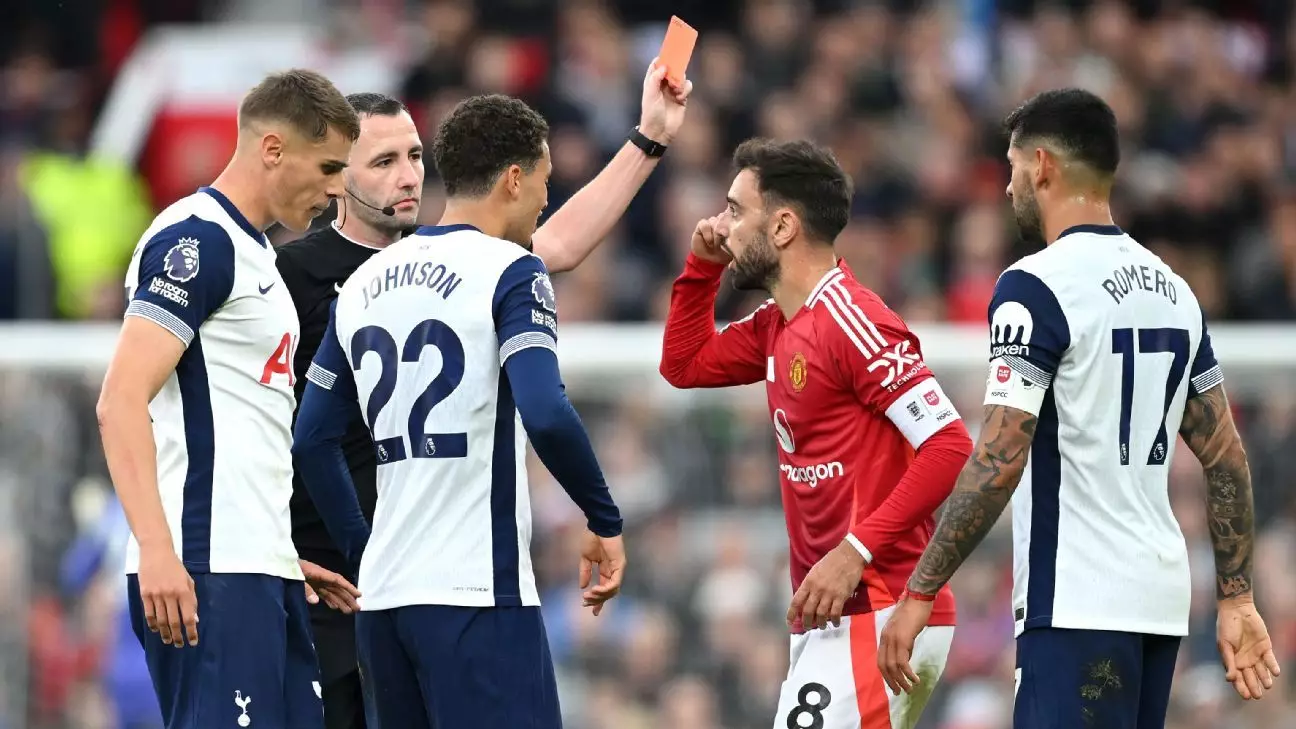In the realm of football, few incidents spark as much debate as a red card decision. This was epitomized in Manchester United’s recent match against Tottenham Hotspur. Bruno Fernandes, the captain of United, received a red card for what many perceived to be a marginal foul on Spurs midfielder James Maddison. The referee, Chris Kavanagh, deemed that Fernandes’ challenge warranted immediate expulsion from the match, a claim bolstered by VAR support. However, this decisive action became the catalyst for further scrutiny and discussion.
Following the match, Manchester United took decisive action by lodging an appeal against Fernandes’ dismissal. On Tuesday, the Football Association (FA) announced the successful appeal, ultimately overturning the initial red card decision. This reinstates Fernandes for the crucial upcoming fixtures against Aston Villa, Brentford, and West Ham, allowing United to field their most influential player during a critical stretch in their campaign. The FA’s swift intervention characterized their willingness to reassess contentious officiating decisions, signaling a pivotal moment in the club’s season.
From a tactical standpoint, Fernandes’ dismissal undeniably shifted the momentum of the match against Tottenham. Manager Erik ten Hag observed continued dominance from Spurs, yet acknowledged that the red card was a “game-changing” incident. This acknowledgment underlines an essential strategy in football; decisions made in pivotal moments can dramatically alter match dynamics. While some analysts question whether the red card genuinely impacted the result, it certainly skewed the competitive balance on the pitch.
The aftermath of the incident saw Fernandes expressing his discontent strongly. In interviews, he recounted his conversation with Maddison and reiterated his belief that the foul did not warrant such a severe penalty. His remarks highlight a crucial aspect of competitive sports: players often retain unique perspectives on their actions during gameplay, regardless of official rulings. Fernandes’s insistence that similar fouls have gone unpunished brings to light the ongoing conversation surrounding officiating consistency in professional football.
This incident and subsequent appeal also open discussions on the broader implications within the sport. The effectiveness of VAR continues to be a hot topic, where its capacity to support or contradict on-field decisions remains controversial. The successful appeal for Fernandes indicates a potential shift toward a more lenient and nuanced interpretation of rules, at least in significant instances of contention. Football enthusiasts will undoubtedly keep an eye on whether this trend affects officiating moving forward, especially as leagues navigate the intricate balance between maintaining discipline and ensuring fair play.
The overturning of Bruno Fernandes’ red card showcases the complexities of football officiating. The event served not only as a critical inflection point for Manchester United’s season but also as a reinforcement of the necessity for consistent standards and the ongoing evolution of the game. As United gears up for its upcoming matches, it will be imperative to translate this administrative victory into performance on the pitch.

